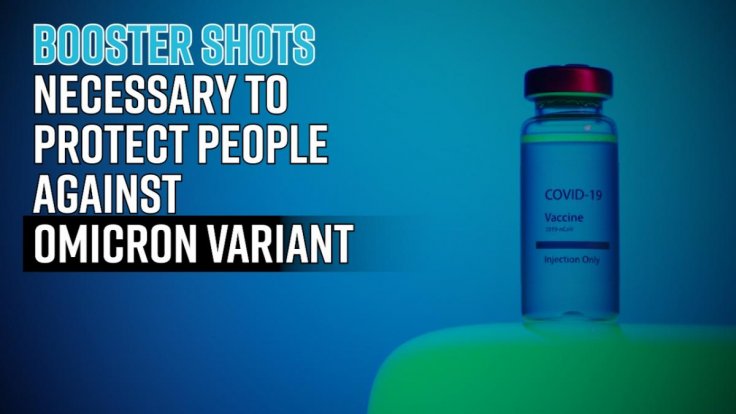In what may be seen as a great relief for South Africa, the spread of Omicron variant of COVID-19 has slowed down. Experts have said that the South African population's T-cell immunity against COVID-19 has kept hospitalizations low, despite the Government's decision not to go for locking down.
On Saturday, National Institute for Communicable Diseases said that only 17,154 cases were reported last week, up 4.8% compared to the previous week. However, the country detected just 22,391 cases till Thursday (December 9). The number of hospitalizations, too, has decreased because of Omicron outbreak has dropped during this period.
According to the National Institute, the situation was much serious during the Delta wave. In a statement, the Institute said that 36 new COVID-19-related deaths were reported on Saturday (December 11), highest since Wednesday (December 8), as the country reported only 16.4% test positivity rate. Meanwhile, experts have advised the Government of South Africa to take care of younger people, as they could be infected easily. It is to be noted that 76% of the population in Johannesburg have previously been infected with COVID-19.

Professor of Vaccinology at the University of the Witwatersrand in Johannesburg Shabir Madhi wrote on his Twitter account that the rate of infection increased faster during the previous three waves. This time, a much slower rate has been noticed, with signs of hospitalizations remaining low. "Three weeks into resurgence, many adults and children testing SARS-CoV-2 (positive) in hospital, but COVID hospitalization remains low relative to community case rate," he wrote. Professor Madhi further said: "Death rate very low compared to period of same case rate in previous waves. Trend over next week will be informative, but optimistic unlikely to surge."
Gauteng Province is considered as 'ground-zero' for the spread of Omicron variant in South Africa. According to Professor Madhi, the death rate was initially 73% in this region, although the population was either vaccinated or previously infected, giving T-cell immunity. However, the rate of infection has decreased in Gauteng, too, in recent times.

The professor has congratulated the Government of South Africa for not panicking, and imposing more COVID-19 restrictions in order to contain the outbreak of the Omicron variant. "Government response correctly remains measured by not increasing restrictions and not panicking with increase in cases, but seem to rather focusing on COVID (excluding coincidental Ix) hospitalization and health facility capacity," stressed Professor Madhi.
While KwaZulu-Natal has reported 15% rise in infection rate, Western Cape has accounted for 9%, North West 7%, Northern Cape 1%, and Eastern Cape, Free State, Limpopo and Mpumalanga have reported around 3-5% rise each in the last seven days.









